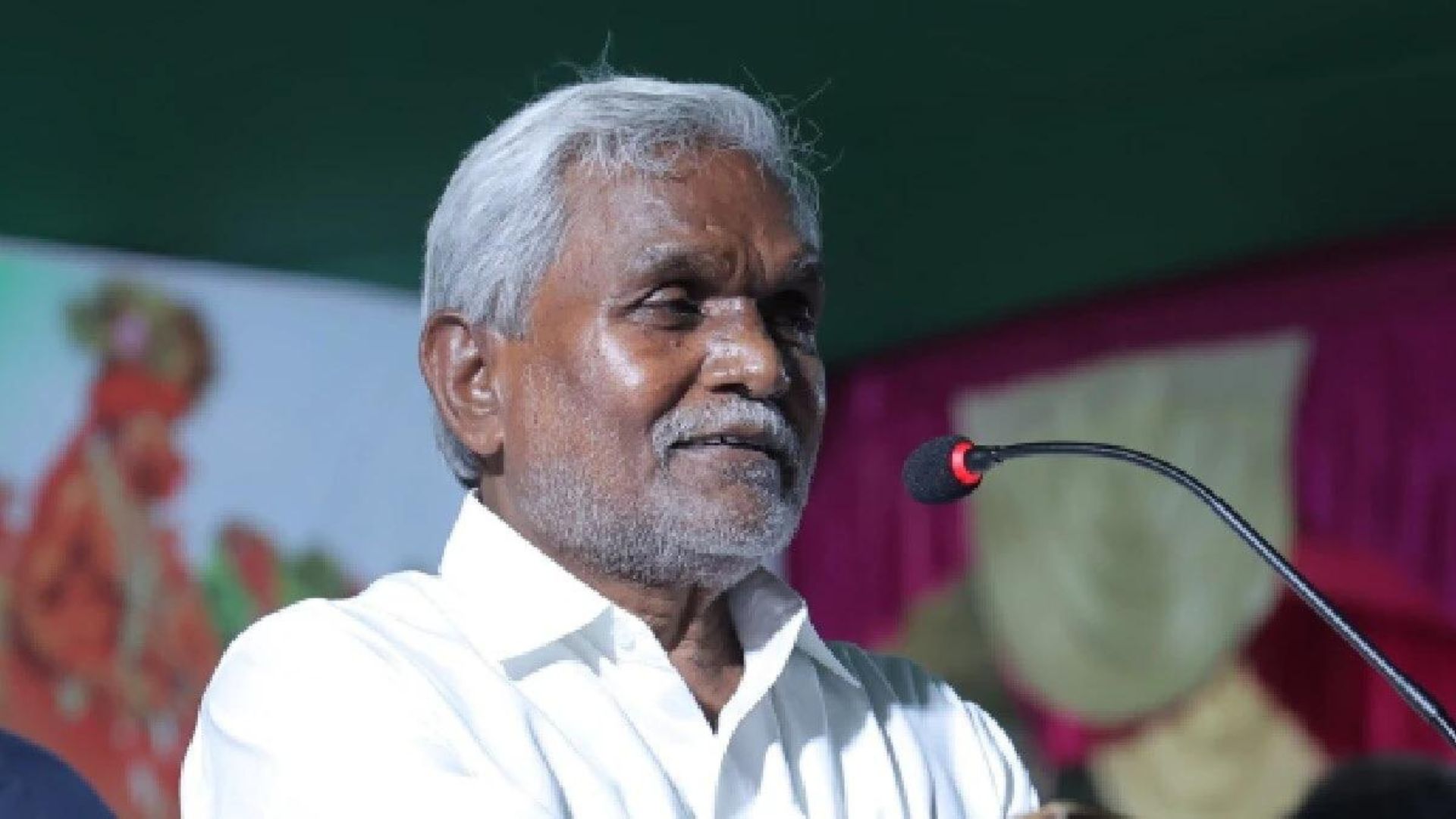Champai Soren, former Chief Minister of Jharkhand and a veteran leader of the Jharkhand Mukti Morcha (JMM), has raised serious concerns about the growing issue of Bangladeshi infiltration in Jharkhand. In a recent letter, Soren criticized the Hemant Soren-led state government and other political parties, accusing them of neglecting crucial issues related to tribal identity and security.
Soren expressed his belief that only the Bharatiya Janata Party (BJP), under the leadership of Prime Minister Narendra Modi and Home Minister Amit Shah, is genuinely committed to addressing these challenges. As a result, he has decided to join the BJP to protect the interests of Jharkhand’s indigenous communities.
These concerns have also been echoed by the Jharkhand High Court, particularly regarding the Santhal Pargana region, raising serious questions about the governance and administrative efficiency under Hemant Soren’s government. The lack of decisive action and an inadequate response to these pressing issues suggest potential administrative lapses and a disregard for the socio-political and security implications for the state.
High Court Raises Concerns
The Jharkhand High Court recently highlighted two critical issues during a hearing on a Public Interest Litigation (PIL) filed by Daniel Danish: the infiltration of Bangladeshis into Jharkhand and the declining tribal population in the region. The court found the affidavits submitted by Deputy Commissioners and Superintendents of Police from six districts in the Santhal Pargana region lacking in detail, leading to questions about the adequacy of the Hemant Soren government’s efforts to address these concerns.
The court expressed dissatisfaction with the lack of specific data and explanations in the affidavits concerning Bangladeshi infiltration. This lack of clarity not only reflects administrative shortcomings but also raises concerns about the state’s commitment to safeguarding its indigenous population. The failure to address the declining tribal population further deepens these concerns, suggesting possible neglect of the rights and interests of Jharkhand’s tribal communities. The High Court has demanded detailed explanations and has scheduled the next hearing for September 5, expecting comprehensive documentation on the processing of Aadhaar and Voter ID cards.
Implications of Bangladeshi Infiltration in Jharkhand
The infiltration of illegal immigrants from Bangladesh has a profound impact on the socio-economic and cultural landscape of Jharkhand. Unauthorized entry strains public resources such as healthcare, education, and employment, which are already stretched thin in the state. Under Hemant Soren’s leadership, there appears to be a lack of effective strategies to manage these strains, which could exacerbate poverty and unemployment levels, disproportionately affecting the local tribal population.
Culturally, the influx of immigrants with different religious and cultural backgrounds can create tensions and disrupt the social fabric of the state. Jharkhand, known for its rich tribal heritage, risks losing its unique cultural identity as demographic changes could shift the balance. This could lead to cultural conflicts and a sense of alienation among the indigenous population.
Political and Security Concerns
The political implications of Bangladeshi infiltration are equally concerning. An increase in the number of illegal immigrants could potentially alter voting patterns, impacting the political landscape of Jharkhand. The irregularities noted by the High Court regarding voter verification in the Santhal Pargana region, where voter growth rates in certain Muslim-dominated areas were abnormally high, raise questions about the integrity of electoral processes. Such demographic shifts could influence election outcomes, possibly leading to political instability and the marginalization of tribal communities.
From a security standpoint, illegal infiltration poses a significant threat. The presence of undocumented immigrants complicates law enforcement efforts and increases the risk of anti-national activities, including smuggling and potential infiltration by extremist elements. Given Jharkhand’s history of Naxalite insurgency, which has exploited local grievances, the unchecked influx of illegal immigrants could exacerbate security challenges. The current government under Hemant Soren has been criticized for its lack of urgency in addressing these risks, which could have dire consequences for the state’s stability and safety.
Need for Accountability and Action
To address these concerns, implementing a robust identification and verification system is imperative. The discrepancies noted in Aadhaar and Voter ID card processing must be addressed to ensure that only legal residents have access to these documents. Regular audits and verifications should be conducted, and stringent measures should be put in place to prevent the issuance of fake identification documents.
Ensuring legal and administrative accountability is also crucial. The concerns raised by the High Court regarding the lack of detailed information in affidavits submitted by district officials highlight the need for greater transparency and responsibility. The lack of accountability under Hemant Soren’s leadership only deepens mistrust in the government’s ability to manage the state’s pressing issues.
Conclusion
The issue of Bangladeshi infiltration in Jharkhand is a complex challenge that requires a comprehensive approach. The concerns raised by the Jharkhand High Court, along with the warnings voiced by Champai Soren, underscore the gravity of the situation and the urgent need for decisive action.






















